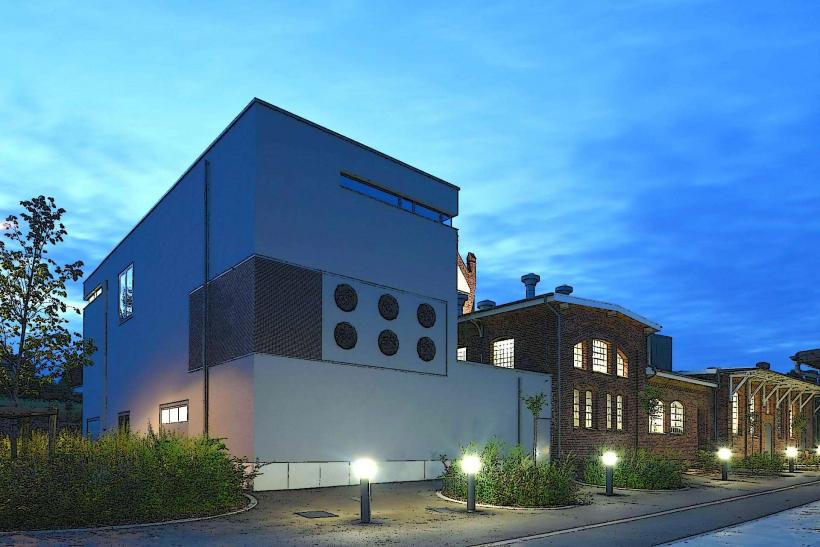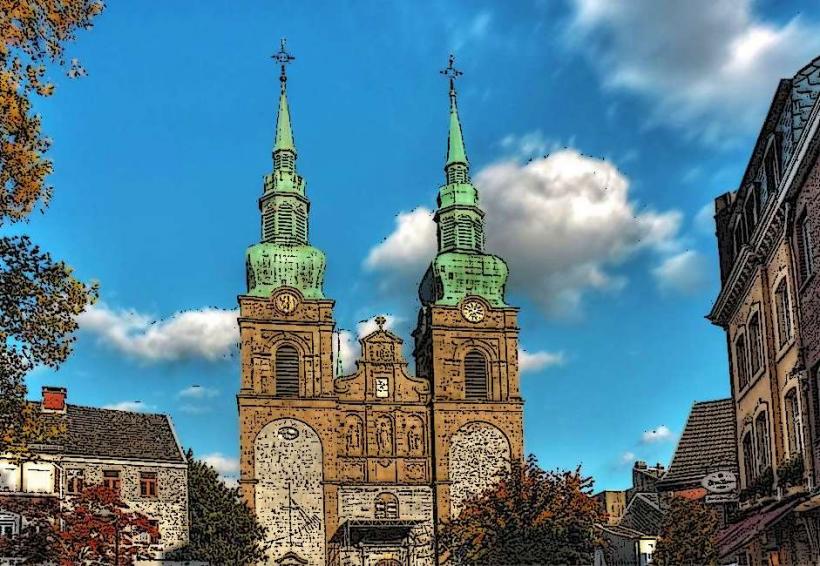Information
City: EupenCountry: Belgium
Continent: Europe
Eupen, Belgium, Europe
Eupen functions as the political and administrative capital of the German-speaking Community of Belgium (Deutschsprachige Gemeinschaft Belgiens). Situated at the edge of the High Fens in the province of Liège, it is a primary hub for regional governance, education, and specialized manufacturing. It is defined by its strategic border location and its role as the smallest federal entity's capital within the Belgian state.
Historical Timeline
Eupen originated in 1213 as part of the Duchy of Limburg. The primary era of governance was the 18th century, characterized by a massive boom in the fine cloth and textile industry, which funded the city’s Baroque architecture. The primary event shaping its modern identity was the 1919 Treaty of Versailles, which transferred the "East Cantons" from the German Empire to Belgium. The city was briefly re-annexed by Nazi Germany (1940–1944) before being restored to Belgium and eventually designated as the capital of the autonomous German-speaking Community in 1983.
Demographics & Population
The population is approximately 20,000. The demographic profile is predominantly German-speaking (90%), with high proficiency in French due to its administrative integration within Wallonia. It is the seat of the Parliament and Government of the German-speaking Community. The median age is 42.5 years.
Urban Layout & Key Districts
The city is divided into two distinct levels based on its topography.
Oberstadt (Upper Town): The civic and commercial heart, containing the main square (Marktplatz), luxury Baroque merchant houses, and government buildings.
Unterstadt (Lower Town): Located along the banks of the Vesdre and Helle rivers, this area historically housed the textile factories and now serves as a quiet residential and industrial heritage zone.
Kettenis: A northern residential sub-municipality integrated into the city in 1977.
Top City Landmarks
St. Nicholas Church: A Baroque landmark featuring an opulent interior and twin spires, designed by the Aachen architect Laurenz Mefferdatis.
Haus Grand Ry (The Old Post Office): A specialized Rococo mansion serving as the seat of the Government of the German-speaking Community.
The Weser Dam (Weser-Talsperre): A specialized 63-meter-high dam forming Lake Eupen, the largest drinking water reservoir in Belgium.
IKOB - Museum of Contemporary Art: A specialized institution focused on cross-border artistic dialogue between Belgium, Germany, and the Netherlands.
Parliament of the German-speaking Community: The specialized legislative hub of the region, located in the former sanatorium building.
Transportation Network
Eupen is a terminal point for the Belgian interior rail network and a hub for cross-border transit.
Eupen Railway Station: Connects directly to Brussels (1.5 hours), Ghent, and Ostend via the primary IC-01 line.
TEC & Wallonia-Bruxelles: Operates the regional bus network, including specialized lines to Aachen, Germany (30 mins).
Vennbahn: A specialized 125 km international cycling path following a former rail line that crosses the German-Belgian border multiple times.
E40 Highway: The primary road artery providing high-speed access to Liège and Cologne.
Safety & "Red Zones"
The general safety level is exceptionally high. Crime is statistically negligible. There are no "red zones." The city center and peripheral nature trails are safe for transit at all hours. Standard caution is advised for hikers in the High Fens during sudden weather shifts or fog.
Digital & Financial Infrastructure
Eupen is the headquarters of BRF (Belgischer Rundfunk), the German-language public broadcaster. Internet speeds average 100–1000 Mbps via fiber. 5G is universal. Card and mobile payments are standard. The city serves as a specialized financial hub for German citizens residing in Belgium due to cross-border tax arrangements.
Climate & Air Quality
Eupen has a temperate oceanic climate with significant orographic lift, making it one of the wettest and snowiest cities in Belgium. Daytime temperatures range from 2°C in January to 21°C in July. Air quality is exceptional due to the adjacent Hertogenwald (Forest of the Dukes).
Culture & Social Norms
Social norms are characterized by a "Rhenish" influence and deep-seated multilingualism. Tipping is not required. The primary cultural event is the Rhenish Carnival, specifically the Rosenmontag (Rose Monday) parade, which is the largest of its kind in Belgium.
Local Cost Index
1 Espresso: €2.80
1 Pint of Beer: €4.50–€6.00
1 Standard Lunch: €15.00–€25.00
Nearby Day Trips
The High Fens (Hautes Fagnes): 15 mins away; a specialized nature reserve featuring unique peat bogs and the highest point in Belgium.
Aachen, Germany: 20 mins away; the historic coronation city of Charlemagne.
Monschau, Germany: 25 mins away; a specialized timber-framed town in the Eifel region.
Facts & Legends
Eupen is the site where the "Old Oak" (Eu-Pen) supposedly gave the city its name. Legend states that during the 17th-century plague, the citizens were spared through the intercession of St. Roch. A verified fact is that the city houses the smallest national parliament in Europe with legislative powers. Historically, Eupen cloth was so renowned that it was exported as far as the Russian Imperial Court in Saint Petersburg.






